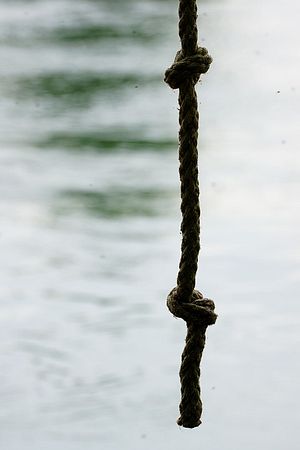Pakistan, according to a constant and common refrain, provides an enabling environment for extremism. So long as the state is unable or unwilling to confront the radical ideologies that suffuse society, and to sever its ties with groups that propagate and act violently on such ideologies, then the country will continue to suffer the miseries of militancy—no matter how many terrorists are taken out on the battlefield.
In other words: To end terror, eliminate the ugly ideologies that fuel it. For years, this has been the default diagnosis of Pakistan’s terrorism problem. And it is absolutely correct.
However, today’s hanging of Mumtaz Qadri, a former police officer who in 2011 assassinated Salman Taseer, the governor of Punjab province, raises a question that even the most stubborn of skeptics must confront: Are narratives about extremism slowly starting to shift for the better in Pakistan?
Qadri killed Taseer because of the latter’s outspoken opposition to Pakistan’s blasphemy laws, which hardliners exploit to persecute the country’s beleaguered religious minorities. Taseer, more broadly, was a strong supporter of minority rights—a position that put him in the cross-hairs of Pakistan’s religious extremists. After the assassination, Qadri was seemingly lionized as much as Taseer was mourned. He was infamously garlanded and showered with rose petals during his initial court appearance.
A troubling Harvard University analysis of social media’s response in Pakistan to the Taseer assassination documented how many new Facebook pages were created to champion Qadri’s act (one site registered over 2,000 likes early on). Many users urged each other to use Qadri’s face as their profile picture. An Islamist version of Facebook, MillatFacebook, became a popular venue for pro-Qadri commentary.
Qadri continued to enjoy the support of numerous religious conservatives as well as lawyers to the day he died. After word of his fate became known, spontaneous protests sprung up around Pakistan to condemn his execution.
In effect, the Pakistani state hanged a man who was revered by the radicalized elements of society. This is no small matter, by any measure.
Pakistan’s decision to execute Qadri, however, does not come in isolation. It comes on the heels of several other legal decisions that suggest the state is prepared to push back against religious extremists. In October, when Pakistan’s Supreme Court upheld Qadri’s conviction, it also stated that blasphemy laws are not beyond criticism. This was huge, given how the blasphemy laws are largely regarded as sacrosanct—a status that only a brave few have been willing to challenge since Taseer’s assassination, which had a hushing effect on debate about the controversial law.
In recent weeks, the Punjab provincial government—led by the same party that runs the federal government—banned a hardline Islamist group, Tablighi Jamaat, from preaching in educational institutions (a prime venue for recruitment). And in recent days, the Punjab legislature unanimously passed a landmark bill that protects women’s rights.
This all suggests that times are changing in Pakistan. This was a message I heard often and emphatically during a trip to the country several weeks ago. In Islamabad and Lahore, people continued to worry in a big way about the threat of terror, but there was a noticeable energy and optimism in the air. The state is crafting new narratives against extremism, I was assured. It can’t happen overnight, but it is nonetheless happening, slowly but surely.
The events of recent weeks certainly buttress claims that change is afoot. However, let’s not get carried away.
After all, we’ve been here before. Pakistan has previously passed legislation that outlaws violence against women. In recent months, and particularly since the Peshawar school massacre in late 2014, the state has cracked down on hate speech (albeit to a limited extent) and on those who spew it.
Additionally, it bears noting that loud and hardline voices have condemned the aforementioned developments of recent months. The state has said little to nothing in response to such condemnations—thereby attesting to its continued inability (or hesitation or outright refusal) to craft a compelling counternarrative to the ideologies of hate that pervade large segments of Pakistani society.
Furthermore, bottom-line realities about extremism in Pakistan remain in place. Little has been done to combat extremist ideologies and violence that target areas across Pakistan’s borders. Quite simply, terror groups that do not target the Pakistani state—from the Haqqani Network to Lashkar-e-Taiba—are not being targeted by the Pakistani state. Mumtaz Qadri, who directed his ire at Pakistani domestic laws and a provincial governor, targeted the Pakistani state, not India or Afghanistan.
This distinction is not surprising, given that the Pakistani state continues to espouse positions deeply critical of its neighbors. The large number of Afghan refugees in Pakistan—always a delicate matter, and particularly in recent years when many terror attacks in Pakistan have been carried out by Afghanistan-based militants—is often singled out by Pakistani authorities as a security threat, with the suggestion that Pakistan will become more stable when these refugees leave. Meanwhile, Pakistani officials with whom I spoke privately on my recent visit did not hesitate to accuse India of abetting Afghanistan-based terror groups that target Pakistan—while choosing to offer little evidence to back up such allegations.
If Pakistan is to make meaningful progress in its efforts to expunge violent extremism, then it will need to root out all sources of extremism, and not just those that target Pakistan proper.
None of this, however, should diminish the achievements of recent weeks. After all, you need to start somewhere. Islamabad’s decision to mete out the ultimate punishment to a man supported by powerful pockets of Pakistani society was unmistakably bold. The Qadri execution also undercuts the oft-stated claim that Pakistan’s legal system is ineffective and lacking in teeth. In this case, a long legal process played out that ended with Pakistan’s president rejecting a final plea for mercy.
Given such considerations, the Qadri saga and other events of recent weeks give reason to be optimistic—albeit very cautiously so.

































